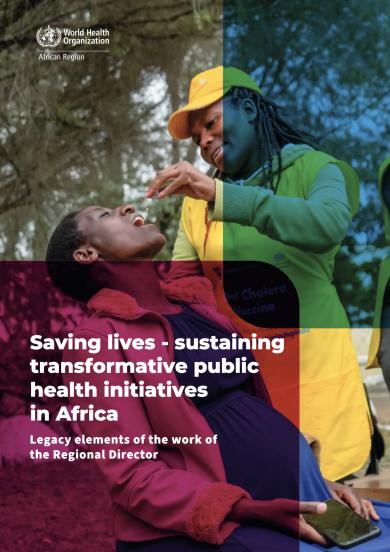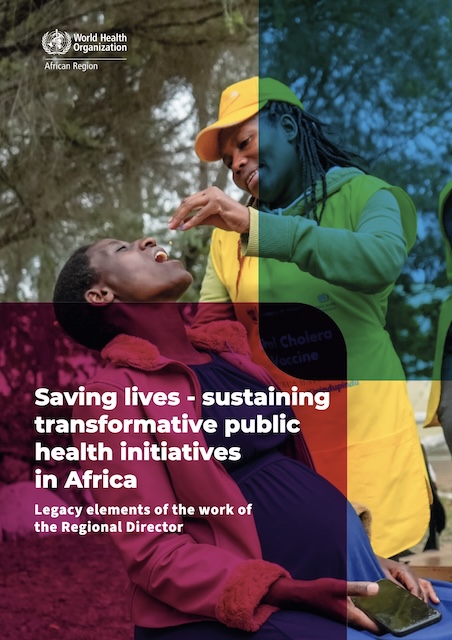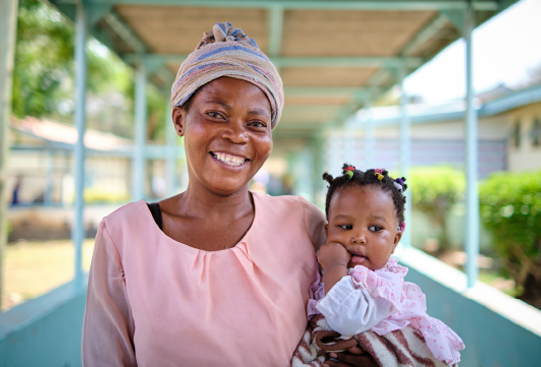This document provides an overview of five ‘legacy elements’ that have served the countries of the African Region over the past decade as they responded to an increasingly complex and challenging health landscape. These legacy elements, each unique in their design and approach, have made a significant impact on both the delivery of health services and programmes, and WHO’s ultimate goal of saving lives. The legacy elements highlight the transformative public health initiatives the Regional Office has actioned to ensure a fit-for-purpose Organization that is responsive to the needs of its Member States. Notable in terms of their innovation and impact, sustaining these legacy elements will require more diverse funding models, stronger local partnerships, effective community engagement, and addressing the social and economic determinants of health.
The sustainability of any response to health priorities in the region must build on a commitment to health system strengthening. This requires investments in initiatives such as the legacy elements outlined here, but also in strengthening health systems, extending services in hard-to-reach areas and among people at risk of marginalization, and reducing the wastage of health resources. Combined, these sustained investments will ensure that gains in the health sector will not be lost, and the previous decade of success in the African Region will continue to grow.
1. Effective endgame strategies for neglected tropical diseases: ESPEN
Since its inception in 2016, the Expanded Special Project for Elimination of Neglected Tropical Diseases (ESPEN) has been central to the success story of disease control in Africa. A flagship project for the African Region, ESPEN focusses on the five most common neglected tropical diseases (NTDs) treatable with preventive chemotherapy (PC-NTDs). Through ESPEN, WHO provides targeted technical support to national NTD programmes. As an effective approach to disease control and elimination, ESPEN reflects the transition from vertical health programmes to well-planned, integrated health services that respond to health needs throughout the life course, while ensuring services reach the most vulnerable.
Moving forward, ESPEN’s coordination role will be central in empowering stakeholders with accurate and timely health information, strengthening the capacity for integration of the supply chain for NTD medicines within existing national systems, and enhancing country leadership and ownership to foster multi-sectoral coordination mechanisms, promoting collaboration among NTD partners for joint planning and sustained impact.







